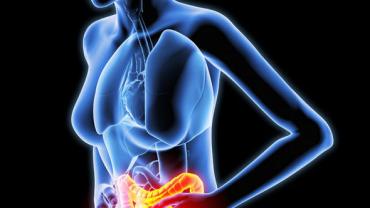
According to a new study published last week in the Journal of Clinical Gastroenterology researchers demonstrated that diet alone can bring pediatric patients with active inflammatory bowel disease (IBD) into remission.
In this study patients were put on a specific carbohydrate diet (SCD) for 12 weeks. This diet consisted of removing grains dairy processed foods and sugars except for honey. At the end of the study eighty percent of the patients showed significant improvement and achieved remission from following the diet alone.
According to a new study published last week in the Journal of Clinical Gastroenterology researchers demonstrated that diet alone can bring pediatric patients with active inflammatory bowel disease (IBD) into remission.
In this study patients were put on a specific carbohydrate diet (SCD) for 12 weeks. This diet consisted of removing grains dairy processed foods and sugars except for honey. At the end of the study eighty percent of the patients showed significant improvement and achieved remission from following the diet alone.
Studies like this which address the underlying cause of disease can be found in the current medical research but you would never know it by visiting many doctors. Unfortunately we see it all too often that there is a huge disconnect between medical research and the practice of traditional medicine when it comes to the management of chronic disorders.
This new study should change the paradigm of how gastroenterologists treat IBD. The typical allopathic approach is focused on symptom management using various anti-inflammatory medications and biologics with serious potential side-effects. These approaches of course can provide substantial relief to the patient but they do not address the cause of the conditions and some evidence suggests that these approaches may result in furthering the pathological process.
What appears to happen with most autoimmune conditions is that there are multiple triggers chronically stimulating the immune system over a long period of time in multiple ways and the immune system gets into an overloaded overwhelmed state and loses its ability to function.
A Personal Story
In April 2015 a father of an 18 year old female reached out to me. His daughter was diagnosed with Crohns disease four months prior. She had one severe episode that resulted in a visit to the emergency room where she was treated with antibiotics and anti-inflammatory medications. Her father was searching for a natural alternative approach to her health.
The patient had a long history of antibiotic treatment and eczema. When she first saw her gastroenterologist she was anemic and her hs-CRP was significantly elevated at 92.2. The doctor simply stated the only solution was a biologic. In addition the anemia was never addressed.
The current medical research demonstrates the significance of micronutrient deficiencies in IBD; however many traditional doctors tell their patients that their condition is not related to diet. For example in a study published in November 2015 researchers reported that micronutrient deficiencies are common in more than half of patients with IBD and have a clinical significance.
I assessed her nutrient status which revealed deficiencies in iron magnesium and vitamin D and addressed them appropriately. A study published last year demonstrated vitamin D deficiency and its association with increased Crohns disease severity. In addition a separate study published in the United European Gastroenterology Journal reported the effects of vitamin D supplementation on intestinal permeability and disease markers in Crohns disease.
Additional testing revealed elevated inflammatory and immune markers as well as a dysbiosis of the gut microbiome which are commonly associated with chronic disease states.
The patient followed an elimination diet based upon food sensitivity results and avoided processed food. Her gut dysbiosis was addressed with specific antimicrobials probiotics glutamine fish oil proteolytic enzymes and antioxidants. At her two month follow up her CBC was normal hs-CRP dropped to 16.3 sed rate was 38 and vitamin D increased to 69.1 ng/ml. At the four month follow up her hs-CRP dropped to a normal range 1.66 and sed rate was within normal limits at eight. Her dads response was “these results are incredible! Its interesting because when she had her two month follow up with the doctor he was insistent on prescribing the biologic even though her labs had improved so much during this time. The doctor stated that he was impressed with the results but that this was a temporary phenomena. Today this young college student is symptom-free and has been in clinical remission for over a year.
There is a time and a place for medications but there remains a large disconnect between the medical research and what is experienced visiting a doctor in everyday practice. The research demonstrates the significance of nutrients and their essential role in chronic disease. Lifestyle choices and environmental exposures filtered through genetic predisposition are fundamental factors in IBD and a successful treatment approach must include investigation into these factors.
By Michael Jurgelewicz DC DACBN DCBCN